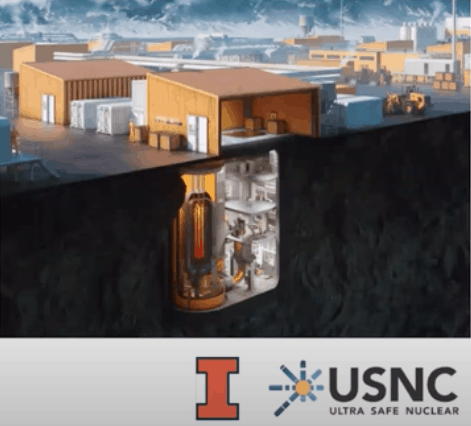Atomic Show #183 – Arjun Makhijani Explains Carbon Free, Nuclear Free Strategy
Dr. Arjun Makhijani has been fighting against the use of nuclear fission energy since his college days in the late 1960s. He was influenced by Professor Thomas Pigford at the University of California, Berkeley who lectured on the need to build 1000 nuclear reactors because using fission was better than depending on coal.
After hearing that lecture, Makhijani questioned the need for using so much power in the first place. He spent the next year developing what he called one of the first papers on energy efficiency. Makhijani earned his PhD in 1972. That PhD was awarded in Electrical Engineering. Here is the description of his PhD from his CV:
“Area of specialization: plasma physics as applied to controlled nuclear fusion. Dissertation topic: multiple mirror confinement of plasmas. Minor fields of doctoral study: statistics and physics.”
After earning his PhD, Makhijani spent the next two years working on the Ford Foundation Energy Policy Project. He was one of the principle authors of the report. He held a variety of academic positions during the period from 1979-1988
In 1987 Makhijani started working part time for the Institute for Energy and Environmental Research (IEER) which is located in Takoma Park, MD. In 1988 he became the President and Senior Engineer at IEER.
Takoma Park is also the home of NIRS and Beyond Nuclear. Robert Alvarez lived there at the time that he served in the Department of Energy.
It is a place where antinuclear activism is commonplace.
Dr. Makhijani abruptly ended the call, but I think you will enjoy the conversation anyway.
Links to documents mentioned during the discussion:
Carbon Free Nuclear Free (PDF download version)
Podcast: Play in new window | Download (Duration: 51:36 — 23.7MB)
Subscribe: RSS




This guy sounds like such a slimer. Dodging questions, talking on both sides of issues, and passing himself off as some kind of expert. It’s too bad he spent more time trying to tell us about windmills and gov’t subsidized solar panels than talking about his thesis on multiple mirror confinement of plasmas. My prediction: His phd experiment was a flop, and he now passes himself off as some kind of expert. Instead of improving his science, he has practiced his politics and now is suckling at the Washington teat instead of doing research into real energy solutions. He’s comfortable in his 6 bedroom house and doesn’t want to rock the boat – just another nodding head to lend an air of legitimacy to the half-baked energy policies that just keep rolling out of DC…
You should do a show from the Thorium Energy Alliance conference coming up at the end of the month from Chicago that would be interesting.
Boy, he sure did want people listening to read his book!
Sounds like the good Dr. was not used to being challenged so effectively – picked up his ball and marched home in a huff.
I agree with the idea that not all generation has to be dispatchable, but you can’t have too much of it on the grid. Smart grid is just an excuse to subsidise renewables, that said there is a lot that can be gained by demandside management for all. Renewables can and have run entire cities, when hydros are a significant part of the mix.
The problems with renewables is that they are not generally be capable of meeting 100% of load 100% of time, but that’s not to say that they cannot make a constructive contribution so long as their cost of production is on a par with other options. However nuclear is the only low carbon generation technology that can cover all demand all of the time.
I think that this was a good exchange, take the spent fuel pool fire discussion, if the fuel’s more than 18 months from defuelling, we don’t appear to have a problem, which probably means that recently removed fuel is a problem, so for at least some of the time there is a real hazard posed by a loss of water in a spent fuel pond. We can’t just wish this kind of stuff away, like PV in Germany will probably never be an economic solution. We need to deal with facts and I think both sides got a good go. I did however really appreciate the correction of the misinformation being pushed by ‘Too cheap to meter’ comments, that was a superb correction and one that doesn’t get made often enough.
@Lindsay – actually the data show that if the fuel has been out of the reactor for more than 180 days, it is no longer generating sufficient heat to cause it to reach temperatures at which it is possible to undergo a rapid chemical reaction (“burn”) that produces hydrogen gas.
I chose to talk about fuel that has been removed from a reactor for 18 months because that is the situation at Fukushima Daiichi unit four, which is the spent fuel pool that the antinuclear activists are trying to claim is a risk to all life on earth – or at least all life in the northern hemisphere.
http://www.youtube.com/watch?v=dIoCh9YZ1DA
Thanks Rod, it’s certainly a risk I’d be willing to live with if I had to (although I’d much rather have an MSR next door though), how hard can it be to keep water in a pool. Everything has risk as you know. Kudos to you, I thought that you ran that interview extremely well, it must have been difficult at times to resist the temptation to really stick the boot in. I’m just listening to that link that you posted, Helen Caldicott, wow, I don’t know what to say, she’s very special and I’m think that the gaseous diffusion plant has or is going to be decommissioned. Never let the truth get in the way of a good story.
I’m 2/3 through the second section and it’s all I can do to stop myself throwing things at the screen, oh my gosh, what scaremongering, what nonsense. I can’t take anymore, but thanks for the reference.
I did want to point out that the calculated fire risk for spent fuel was 180 days, not 18 months. This is ~1/3 the time stated and paints a rosier picture. Obviously you still cannot entirely get away from the issue, but that means approximately 2/3 of the time, the spent fuel pool is inherently safe.
Ah…nevermind. Rod got that already 🙂
Rod, sounds to me like that guy really wiped the floor with you. I wonder if the other commenters listened to the same interview I did.
@Michael – that is an interesting comment. Do you believe that it is actually possible to run a modern, prosperous society on inherently unreliable power sources? Do you think that the concept of “baseload” power is obsolete?
Have you ever operated any kind of power grid or supplied power to any group of demanding customers who need reliable power in order to do their jobs?
Guess it’s nothing else but people hear what they want to hear. Nevertheless, Michael – lets be specific, and that will help everybody understand the basis for your opinion.
Does anyone have a link to Lewis Stauss’ “Too Cheap to Meter” full speech in 1954 that was mentioned in this podcast?
The reason I’m not convinced it was part of some sort of organised nuclear fission propaganda in the 1950’s is that it is a phrase that doesn’t seem to have been used again for over 30 years after this speech.
Thanks
I do not have a link to the full speech, but here are a couple of articles that talked about it.
http://media.cns-snc.ca/media/toocheap/toocheap.html
And
https://atomicinsights.com/2005/03/too-cheap-meter-its-now-true.html
Thanks for that. I’ve been reading an absolutely fantastic book on nuclear issues called
The Rise of Nuclear Fear
http://www.amazon.com/Rise-Nuclear-Fear-Spencer-Weart/dp/0674052331/ref=sr_1_1?ie=UTF8&qid=1339333925&sr=8-1&keywords=nuclear+fear
by Spencer Weart. If anyone hasn’t read it I certainly recommend it and if you have it would be great to try to get him on the show (the book only came out a few months ago)
Makhijani brings up the high insurance costs of nuclear energy based on an estimate of $hundreds of billions in potential economic damage.
We could break down the costs to see whether they are an inherent aspect of the energy source, or perhaps the result of a regulatory problem:
“This was a faithful application of the ICRP recommendations based the LNT assumption and its offspring, the concept of “collective dose”, ie., reaching terrifyingly great numbers of “man-sieverts” by multiplying tiny innocuous individual radiation doses by large number of exposed people. In an earlier paper I exposed the lack of sense in and negative consequences of the LNT assumption and of the collective dose and dose commitment concepts (Jaworowski 1999). The application of these principles has caused the costs of the Chernobyl accident to exceed $100 billion in Western Europe (Becker 1996) and much more in post-soviet countries where it has led to unspoken sufferings and the pauperization of millions of people. The international institutions standing behind this assumption and these concepts certainly will not admit responsibility for their disastrous consequences. They should.”
http://www.ncbi.nlm.nih.gov/pmc/articles/PMC2889503/